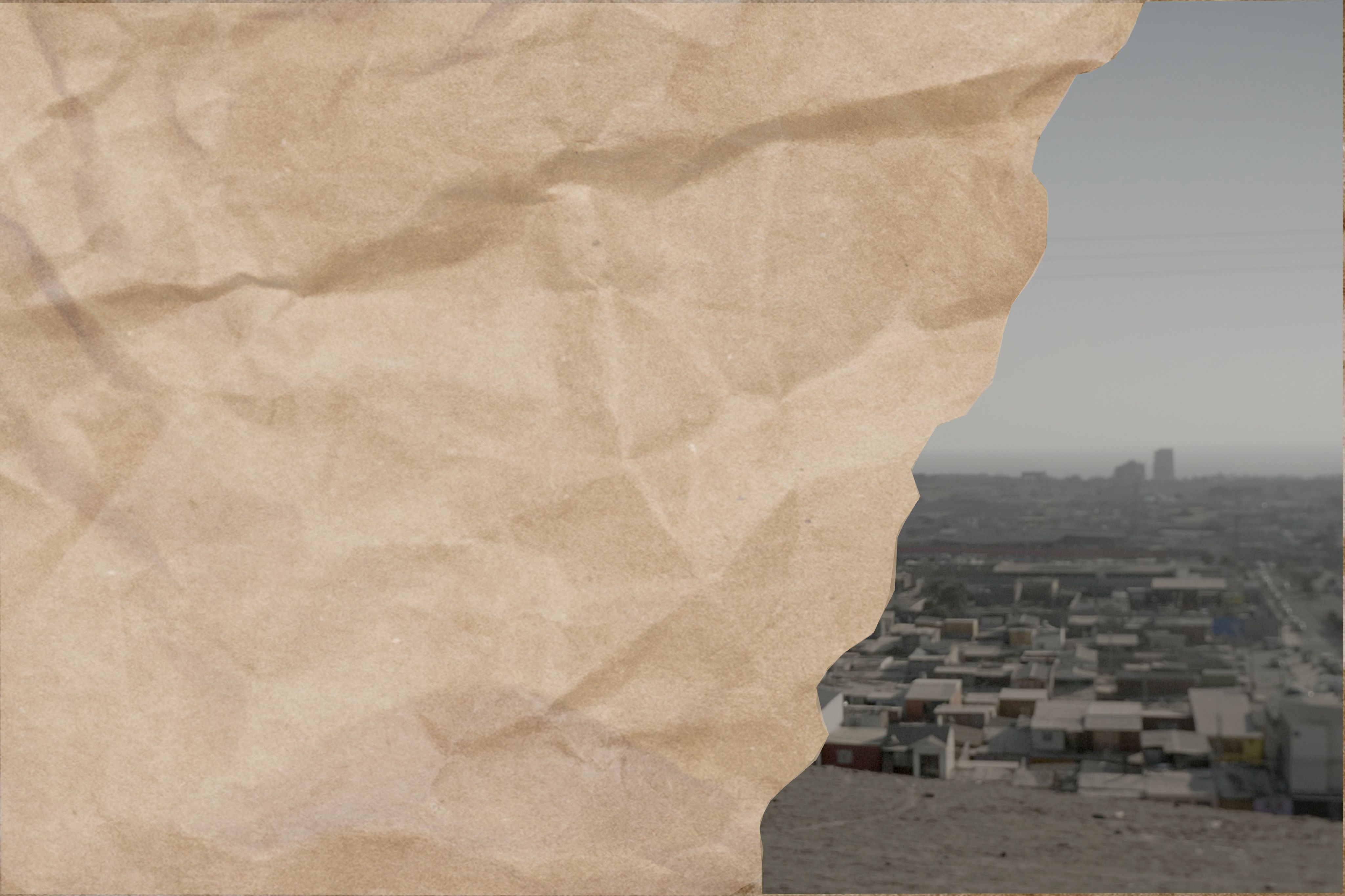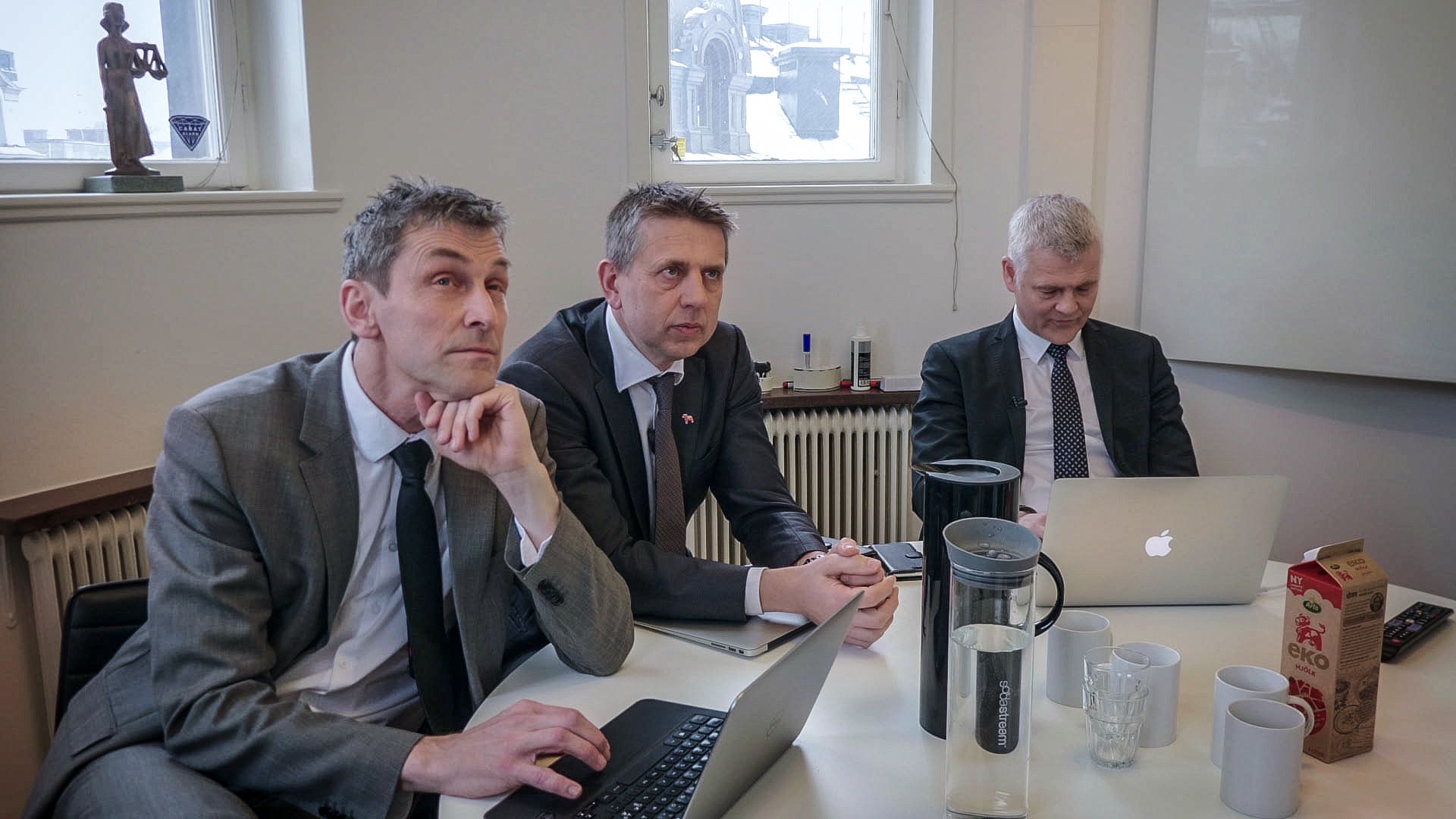Arica
The documentary Arica tells the story of how deadly toxic waste was exported to Arica, Chile, by a Swedish mining company nearly 40 years ago. The fight for justice continues with an important impact campaign.

In 1984, Sweden tightened its environmental laws to prohibit dumping untreated waste within its borders. In response, the mining company Boliden AB, based in Boliden, Sweden, shipped 20,000 tons of untreated toxic waste containing arsenic, mercury and lead to Arica, Chile. Chile’s government allowed it, and Chilean company Promel was paid EUR 1 million by Boliden AB to process it. Only a small portion was processed, and the rest was dumped on the outskirts of Arica, where subsequently a government housing project for low-income families was built. The toxic pile became a playground for local children. The local community began reporting chronic health conditions, with over 10,000 people in the area affected by cancer, neurological disorders and birth defects.
Filmmakers Lars Edman and William Johansson Kalen both grew up close to Boliden’s minefields. Lars was born in Chile and raised in Sweden, and met William in Chile at Valparaiso Film School. Drawn to this story of injustice, they created the 2009 film Toxic Playground, which exposed the environmental and human tragedy. When lawyers from the Environmental Defender Law Center (EDLC) in the U.S. saw the film, it became the catalyst for building a court case against Boliden AB. Footage was used as evidence and Lars was summoned as
a witness. This is where Lars and William’s second film, Arica, begins.
Supported by a Bertha Film Fund grant, Arica covers the Arica Victims v Boliden lawsuit as legal teams from Sweden, Chile and the U.S. prepare a lawsuit against Boliden AB. They represent 796 members of the Arica community, gather evidence and, over the course of six years, built a case to bring to Swedish courts. The Arica case exposes a pattern: multinational corporations in developed countries operate overseas in ways illegal in their home country. When accused of misconduct, the corporations spend large sums of money to hire experts for the defense rather than reimbursing victims.

The trial took place in 2017 in the Skellefteå District Court, but the Arica victims lost the case on technicalities. Their lawyers appealed, taking the case to the Swedish court of appeal, which in 2019 also ruled against the Arica victims on technicalities. If the loss in court were not enough, Boliden AB threatened to sue Arica victims’ lawyers personally to pay for its legal costs – over USD 4,800,000. In a statement released by the UN Office of the United Nations High Commissioner for Human Rights in June 2021, these actions were called out as “a deliberate attempt to produce a wider chilling effect of silencing and intimidating other lawyers and human rights defenders.”
Undeterred, and with the support of a Bertha Media Impact Opportunity Fund grant, the team of production companies, human rights lawyers and activists began lobbying the UN, Sweden and Chile directly, using the film as a key tool in an ongoing global impact campaign. The primary goals are for Sweden to financially support a healthcare program for Arica victims, and to repatriate the toxic waste left in Chile back to Sweden where it can be safely stored in Boliden’s new secure waste vault.
The UN Special Rapporteur on Toxic Waste and Human Rights, and other UN experts, are outspoken advocates for the campaign at the UN. Meanwhile, in Chile, local activists launched an arts activism intervention, in which the walls surrounding the toxic dump site have been painted with murals linking Sweden to the site. As of June 2021, the United Nations Human Rights Council has advised the Swedish government that “urgent measures should be taken to repatriate the hazardous wastes...and/or ensure the disposal of the hazardous wastes in an environmentally sound manner.”
After almost 40 years, the Arica community and its advocates fight on, demonstrating activism, storytelling and law being utilized in tandem, nonviolently, to upend unjust power structures and systems of oppression.
“For over 30 years we have seen our families and our neighbors suffer the consequences of this Swedish waste. We have buried our children and been forced from our homes. We will not stop until our voices are heard and the damage is repaired... The people of Arica demand that immediate action is taken to meet our health needs, and that the toxic waste is returned to where it belongs, in Sweden.”
Want to find out more?
CREDITS
Photo 1: Lars William Tudezca flies his kite overlooking the city of Arica. Lars William is the son of Jocelyn, one of the characters in Arica, who named him after the filmmakers. Photo: Laika Film
Photo 2: Rodrigo Pino Vargas (L) and Lars Edman (R) on location where the toxic waste was originally “stored” in Arica. Photo: Laika Film
Photo 3: Lawyers Jonas Ebesson (professor of environmental law at Stockholm University), Johan Öberg and Göran Starkebo (both of Carat Law) await the verdict from the Swedish court of appeal.
Photo: Laika Film
Photo 4: Local activist group Mamitas Del Plomo (Mamas of Lead) mark Swedish National Day 2021 by painting the site of the toxic waste. Photo: José Miguel Garrido
Author: Adrian Kawaley-Lathan, Creative Director
Editorial Consultant: Karen Frances Eng
This story was originally published in the Bertha Climate book and some of the information in this story may have changed since it was first published.



 Built with Shorthand
Built with Shorthand